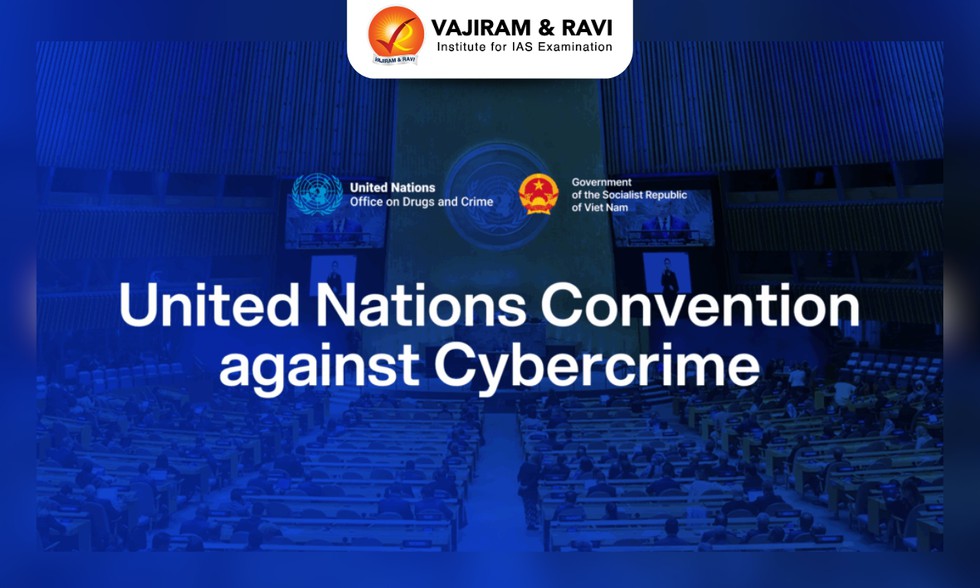About United Nations Convention Against Cybercrime:
- It was adopted by member states of the UN General Assembly (UNGA) in December 2024 to strengthen global cooperation in combating cybercrime.
- Purpose: To promote international cooperation, strengthen measures to prevent and combat cybercrime, and support capacity-building, particularly for developing countries.
- It will enter into force 90 days after the 40th State deposits its ratification.
- India has not yet signed this treaty yet.
- It is the first universal legally binding instrument to strengthen collective defence against cybercrime.
- The convention was developed by the UN Office on Drugs and Crime (UNODC).
- Key Provisions of United Nations Convention Against Cybercrime:
- It sets legal standards for addressing offenses such as illegal access, cyber fraud, and online child exploitation, while ensuring human rights and data privacy.
- It provides States with a range of measures to be undertaken to prevent and combat cybercrime.
- It facilitates the sharing of electronic evidence across borders and establishes a 24/7 cooperation network among States.
- It recognises the non-consensual dissemination of intimate images as an offence.
- It covers crimes such as hacking, ransomware, online financial fraud, illegal interception, money laundering,
- It applies not only to cyber offences but also to the collection and sharing of electronic evidence in serious crimes.
